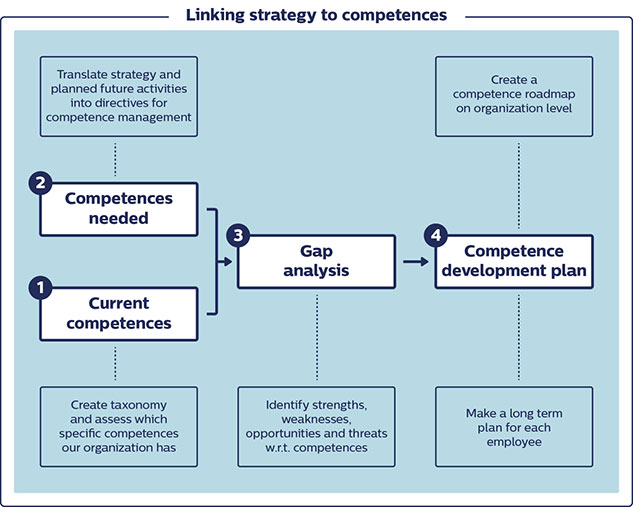Completion requirements
View
Preparing to Coach
Your employee is an adult that you will coach to learn new competence.
It is important that you know how adults learn best. There are many different forms of learning challenges that you will need to be aware of and be able to deal with when coaching.
To be able to identify coach’s difficulties and needs, you must be familiar with the principles of adult learning.
How do Adults Learn?
Adults learn for a reason (why).
- Adults learn by putting skills into practice or by transferring knowledge, e.g. teaching it to someone else.
- Adults learn when learning is beneficial/adds value.
- Adults learn from their own point of reference or experience.
- Adults learn in a logical way, e.g. step-by-step.
- Adults learn differently, depending on their abilities, experience, and background.
- Adults want feedback all the time.
- The adult is a partner in the learning process.
- Adults can take responsibility for their own learning.
- Adult learners gain through reflection on their own and others’ experience.
- Adults learn what they perceive to be useful in their life situations.
- Adults’ attention spans are a function of their interest in the experience.
- Adults are most receptive to instruction that is clearly related to problems they face daily.
- Adults learn best when we treat them with respect.
- Adults learn better in a climate that is informal and personal.
- Adults learn when they feel supported in experimenting with latest ideas and skills.
- Adults are likely to have fixed points of view that make them closed to new ways of thinking and behaving.
To coach effectively, you need to be sure of the following:
- Who do you need to coach?
- What is the desired level of knowledge/skill that would mean that the employee has achieved competence? (What do they need to know that they currently do not know?)
- What is their current level of knowledge/skill? (What don’t they know how to do?)
- What is the best way of closing the gap between 2 and 3?

Determine the "competence gap":
To determine the competence gap use the following process.

Building A Coaching Plan
Consider the following questions when preparing for a coaching session.
Preparing for Coaching Checklist
- Who is (are) the employee(s)?
- What position(s) do they hold in the organisation?
- What skills/knowledge do they need to learn (which they currently lack)? Briefly describe what skills/knowledge they need to gain?
Complete the following:
- The employee needs to be able to…
- What is their current level of knowledge and skill? i.e. What are they not able to do that you would like them to be able to do? (Describe what they need to learn).
- How well do they need to be able to do what you have described in section 3? (If there are any standards etc. describe them.)
- Are you sure that you can fix the competency gap by providing on-the-job instruction of coaching? Is there definitely a lack of knowledge/skills or are there other reasons for poor performance? In short, would the employee be able to do what is needed if their life depended on it? (List any other causes of poor-performance besides lack of knowledge/skills.)
- If you are sure that you are dealing with a genuine coaching need, continue to 10.
- Do you need to provide the employee with any tools or other resources that you have described under 2 and 3?
- Is there any essential information which you need to present to the employee? Briefly describe what information the employee needs to grasp.
- Will the employee need to see the skill demonstrated to learn it? If so, describe how you would demonstrate the skill. Write down the steps you would follow in the order that you would demonstrate them in.
- Will it be enough to provide the employee(s) with on-the-job coaching? Are there any other learning strategies that you should be using as well? (e.g. formal training, self-study, challenging work assignments, etc.)
- If you are satisfied that this is really an on-the-job coaching need, then take the information and plan how to address it.
Click here to download a coaching plan that you can use when needed.
Preparing the Employee
- Ensure that you have found a real learning need which the employee would benefit from addressing.
- Ensure that the employee agrees that it is a genuine need.
- Make sure the employee is aware of any relevant standards which relate to the topic.
- Discuss the learning need to determine the employee’s current level of competence.
- Use observations of the employee’s performance to guide your understanding
- Agree on a time and venue for the coaching.
- Provide the employee with timeous information about the process and any assessment criteria.